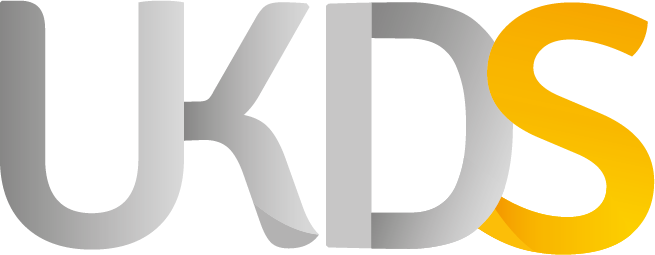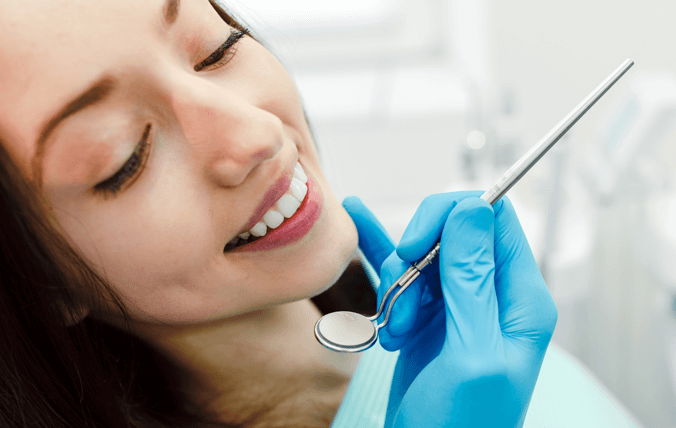At UKDS our expert dental therapist Lidiana and the team are trained to customise your oral hygiene routine specifically to your needs.
A thorough oral hygiene appointment with Lidiana will show you the tricks of the trade and give you key tools to be able to make your dental routine easy to follow and made to work around you.
We have a list of FAQ that may help give you some guidance and advice in terms of your current routine. Maintaining good oral hygiene by visiting the hygienist regularly does not only prevent you from losing your teeth, it can help to prevent gum disease, improve the appearance of your teeth and educate you regarding your dental health to give you daily confidence when smiling & socialising knowing your teeth are as clean as clean can be!
FAQ:
“My teeth never feel clean?”
You can improve on this by making sure you are the following the Gold standard oral hygiene routine:
- Use an electric tooth brush, ideally with a pressure sensor and timer to make sure you brush for the full 2 minutes as recommended. Follow the user manual to ensure you use the brush correctly. I.E make sure the brush head is at a 45 degree angle to the gum line and hold on each tooth surface for 3 seconds.
- Brush twice a day morning and evening (minimum)
- Change your electric tooth brush head regularly – we recommend every 3 months
- Use TEPE brushes/ floss – use the correct size for the correct areas, advised by your dental hygienist. These should be used every evening after brushing before bed.
“Why do I suffer with bad breath?”
- Follow the gold standard oral hygiene routine mentioned above
- Ensure you stay hydrated by having frequent sips of water throughout the day
- Chewing sugar-free gum can also help
- Keep a travel sized mouthwash with you (in your handbag or in your desk drawer) to rinse with after meals.
- Brush your tongue – our tongue often gets missed when we are brushing our teeth and harbours bacteria which can lead to bad breath. You can brush your tongue with your toothbrush or tongue scrapers are available to buy.
“Why does my tongue sometimes appear yellow in colour?”
- Brush your tongue twice a day, the same time as your teeth
- Keep hydrated – dehydration can also cause your tongue to be different in colour
“I cannot seem to fit floss in-between my teeth and in some places the interdental brushes do not fit either, what can I do?”
- Visit your hygienist – they will demonstrate different techniques and help you find a cleaning aid suitable to you. They can also identify any other dentally related issues that may be preventing you from cleaning effectively between your teeth. This could be an overhang from a filling, poor crown margin or calculus build up that needs removing.
“I don’t get along with my interdental brushes, they bend and hurt, what can I do?”
- There are short and long handled TEPE brushes available
- Individuals have preferences on the type they use but there are other techniques your hygienist can help you with when trying to clean between the teeth. E.G. the way you hold the brush and retracting your cheek.
- If you find your gums bleed when using these, do not be alarmed. This is a sign your gums are inflamed which means you need to use them more frequently rather than less. The more you use the TEPE, the less the bleeding will occur.
“There are so many electric toothbrushes available, which one should I buy?”
- A toothbrush with a small, round, oscillating, vibrating head to make sure it can get to those hard to reach areas
- An extra pressure indicator and timer to make sure you are brushing effectively.
- Your hygienist will be able to help you select the most appropriate toothbrush for your needs.
“I clean my teeth twice a day and see a dentist regularly, why do I need to see a hygienist?”
- We often get asked this question or told the dentist cleans my teeth, a hygienist has studied oral hygiene solely and is able to spend more time with you focusing purely on your oral hygiene. A hygiene appointment is more thorough and informative than your own cleaning at home.
“Why won’t my stains go, no matter how often and hard I brush?”
- When it comes to tooth staining, the first instance should be trying to identify where the staining is coming from;
- Food: curry’s and dark colouring
- Drink: Red Wine, Tea or Coffee
When was your last hygiene appointment? Are you using a medium bristle head tooth brush? Do you smoke?
- These are all contributing factors. Do not apply hard pressure as this will cause abrasion tooth wear and sensitivity. Visit your hygienist and ask if this is something they can help you with.
“Do I have gum disease?”
A Hygiene appointment will be able to confirm if you do or do not have gum disease. Common symptoms are:
- Bleeding gums
- Inflammation of gums
- Tender gums
- Loose teeth
If gum disease is left untreated it can lead to tooth loss. The sooner you have this checked and diagnosed, the easier it is to treat to prevent progression of the disease (periodontal disease). We can advise you on what you need to do at home to prevent this.The diagram shows you the supporting structures of the teeth which we examine and measure to be able to diagnose gum disease.The gum becomes inflamed which leads to bleeding and bone loss around the tooth, therefore losing its support and becoming loose.The bone can never grow back but we can prevent it from deteriorating and reduce the inflammation of the gums to add some support back around the teeth.
“I have a lot of dental work in my mouth or braces and I struggle cleaning, what can I do?”
- Having obstacles (should we call them) to clean around can be difficult. In these cases more frequent hygiene appointments are recommended to make sure you are being given the latest tips and advice on cleaning difficult areas. Receiving a personal oral hygiene plan will make you more confident in cleaning your teeth.
“I use mouthwash instead of brushing at night does that matter?”
Mouth wash is not an alternative to brushing, it does not remove plaque from the teeth. Therefore, we would not recommend using mouthwash as an alterative to brushing.
Did you know we offer direct access for hygiene appointments?
This means you can book yourself in for a hygiene appointment with Lidiana without having to be referred from a dentist.
To make your appointment with Lidiana, please contact the dental surgery on
01727 800 372.

 01727 800372
01727 800372
